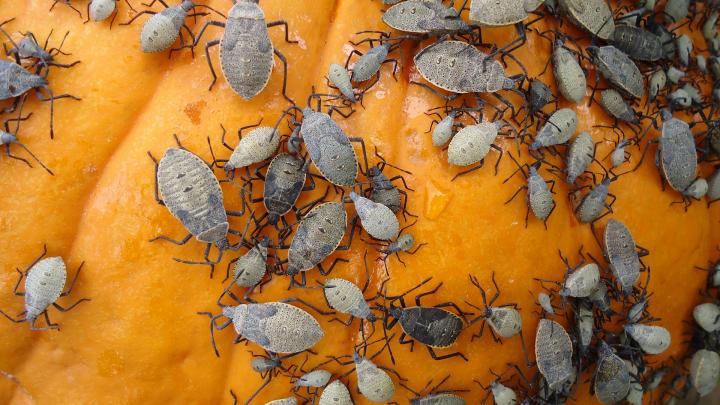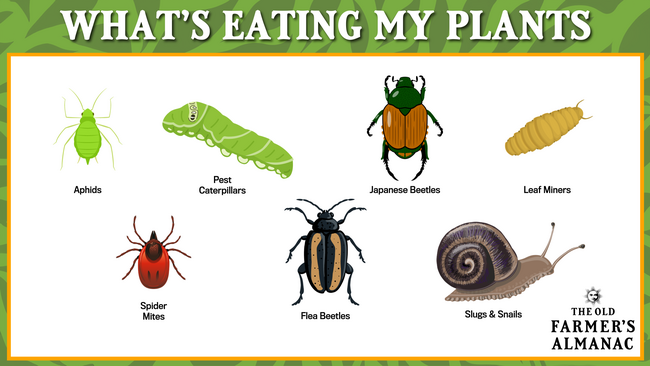
Tips and Tricks for Preventing Squash Bugs
Read Next
Gardening Products
More Like This
Comments
The presence of molds usually indicates overwatering. If you think the seedlings will survive it, you could try to scrape off the mold. Definitely hold off on watering for a while. And when you do . . . mist, don't pour.
Mold sometimes comes from poor/old/unsterile potting soil or unclean pots.
Leaffooted plant bugs especially like to feed on cracked fruit. To control the them on pomegranate, be sure to remove all cracked fruit. Also remove fruit and leaf debris before winter; the bugs will overwinter in them. There are natural parasites, but I don't know if they are available commercially: Gryon pennsylvanicum (attacks the eggs) and a tachnid fly called Trichopoda pennipes. Handpick pests as you can (wear gloves, because they emit an odor). Remove eggs under leaves. Some gardeners protect their fruit by placing them in a muslin or cotton bag that prevents the bugs from accessing the fruit; this is better in drier climates, however. The bugs also like to overwinter in juniper, cyprus, or eucalyptus. Remove weedy areas, which is where the bugs feed when fruit is not available in winter or spring. Nymphs can be knocked out of the tree by gently shaking the branches; lay a white sheet below to catch them and dispose. Chickens can help control the bugs on the ground hiding in plant debris.
One of the most common squash pests is the beetle, but this does not sound like that. (The beetle has a triangle-shape "shield" on his back—but no gel. Yes, you know that.)
It sounds like you are a victim of the squash borer. Take a look at the pics of it here and you'll find several suggestions for eliminating or combatting it lower on the page: http://www.almanac.com/content/squash-vine-borer
Here's a bit more; note especially the last paragraph and best last chance at keeping, maybe not saving, the plant: http://www.extension.umn.edu/garden/insects/find/squash-vine-borers/
Slugs are famous for their gelatinous trail. Here is a little more on those: http://www.almanac.com/content/slugs
We hope this helps.
- « Previous
- 1
- 2
- …
- 10
- Next »










Hi, Clay! This type of solution has worked for other bugs like aphids, and there is some evidence that it could work for squash bugs. Try spraying with a mild solution of water and a few drops of dish soap. If that doesn't work, check out some of our other tips above! Good luck!